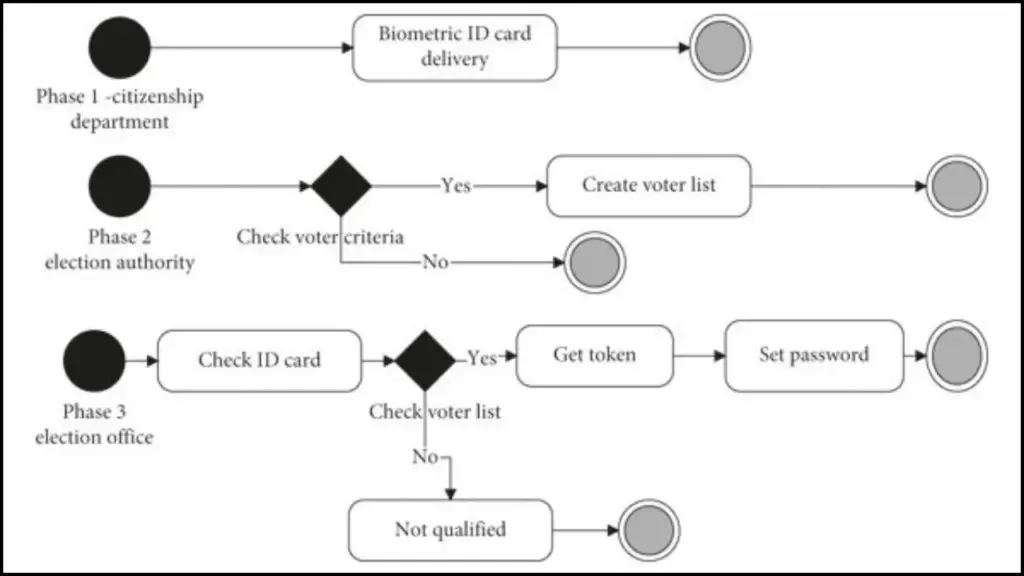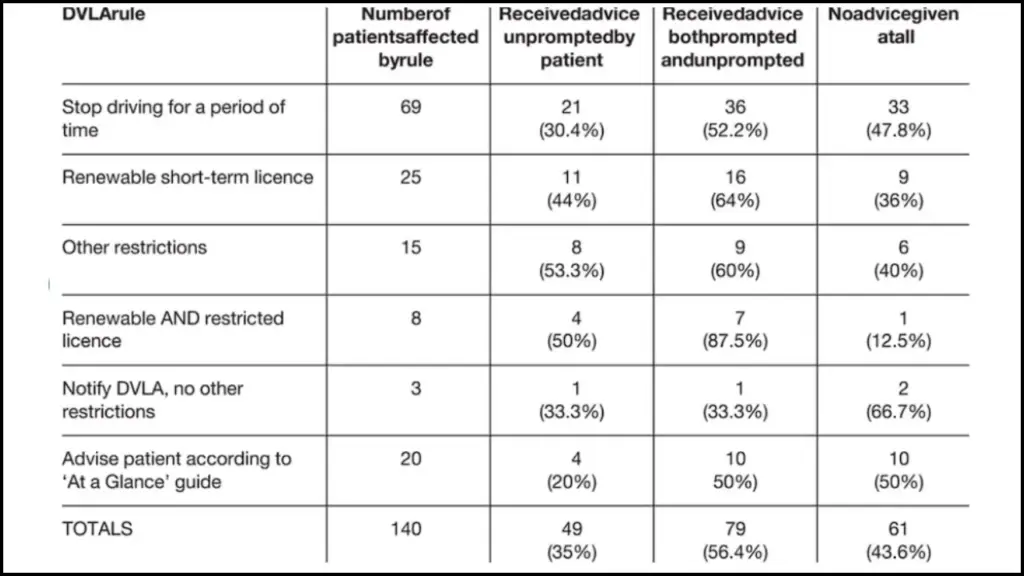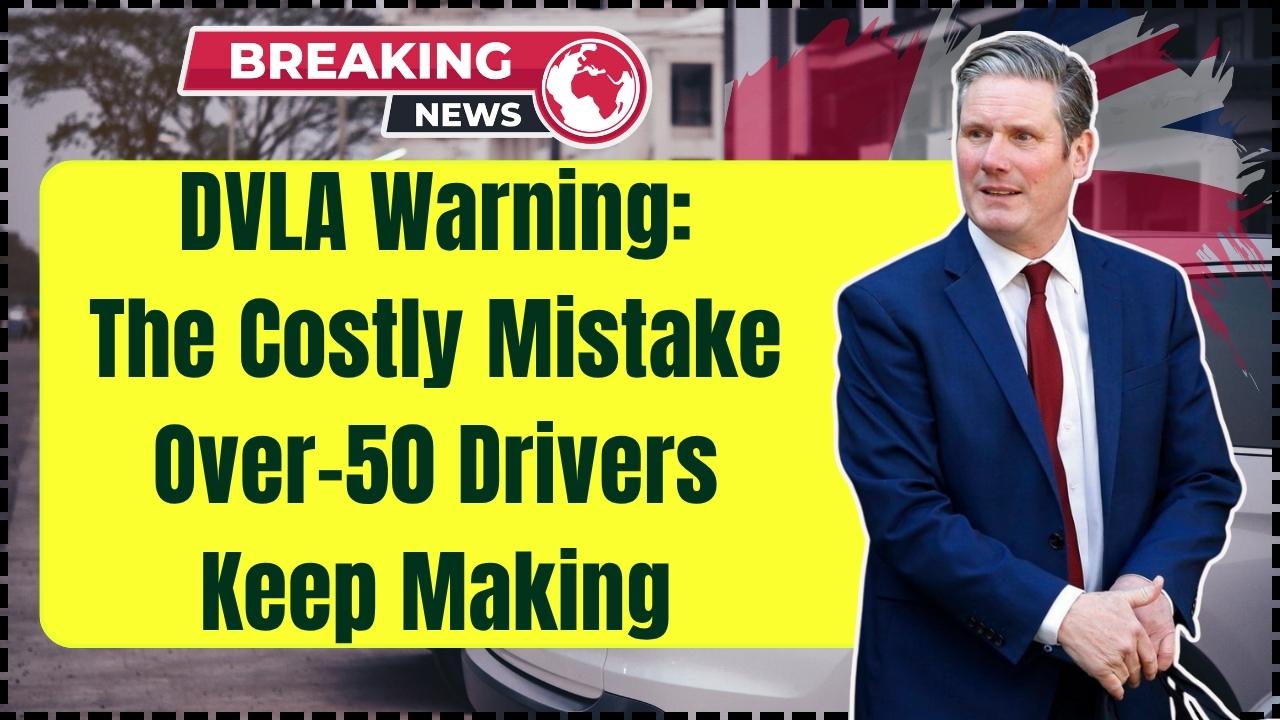UK motorists particularly drivers over 50 risk fines of up to £1,000 for failing to update their address on driving licences and vehicle log books, a legal obligation the Driver and Vehicle Licensing Agency (DVLA) says is free to complete online and must be done as soon as you move.

Table of Contents
Simple DVLA Mistake
DVLA rules are clear: keep your driving licence and V5C addresses up to date immediately after you move, or risk a court fine of up to £1,000, even though updating is free and can be done online; older motorists should also check photocard expiry and the separate, free three‑year renewal at 70 to avoid avoidable penalties and missed legal notices
Why the DVLA Mistake Matters Now
The DVLA Mistake centers on a clear legal duty: motorists must update their address on both the driving licence record and the vehicle’s V5C log book or face fines up to £1,000, according to DVLA guidance. The update is free, available online, and required immediately after moving, a rule that often catches out older drivers who have relocated or maintain multiple vehicle records.
What the Law Requires: Address Updates
The DVLA states drivers can be fined up to £1,000 if they fail to notify an address change on their driving licence, with the same maximum penalty applying to vehicle keepers who do not update the V5C. The legal requirement is to keep details current at all times, and both updates can be completed at no cost using DVLA’s online portals or by post.
Why this Hits Drivers Over 50
Drivers over 50 are not uniquely targeted by the law, but they are more likely to be affected due to home moves, multiple vehicles, and legacy paperwork spanning photocard and V5C records. This demographic also approaches the age-70 renewal threshold, making it critical to distinguish routine address updates from the separate renewal cycle.

Licence vs. V5C: Two Separate Obligations
The driving licence record and the vehicle log book are distinct records, and both must show your current address to avoid penalties and missed notices. DVLA pages specify different processes and forms for each, and motorists should not assume that updating one record automatically updates the other.
Cost, Timing, and Driving While you Wait
Updating your address on the licence and V5C is free, and motorists can continue driving while an updated photocard is processed after an online change. Postal routes are available, but online services are faster; DVLA indicates eligibility and steps for each method on the relevant pages.
Name Changes, Photos, and Expiry Dates
DVLA documentation notes that drivers must inform the agency about changes to personal details, including name changes, with non-compliance exposing motorists to fines up to £1,000. Photocard licences typically need periodic renewal, and the general renewal service sets out the standard fee for most drivers under 70 outside the free over-70 cycle.
Over-70 Renewals are Separate and Free
From age 70, drivers must renew their licence every three years, and the renewal is free via the government portal. This rule is independent of address changes, which must be submitted as soon as a driver moves and not deferred until a renewal date.
How DVLA Enforces the Rules
DVLA outlines that administrative motoring offences can result in enforcement actions, and when cases progress to court, the statutory maximum fine can reach £1,000. Failure to update addresses can compound problems if notices do not reach the registered keeper, leading to escalations that could otherwise be avoided by prompt updates.

Step-by-step: Fix it Today
- Update licence address: Use DVLA’s “Change the address on your driving licence” service; it is free, and you can drive while awaiting the updated photocard.
- Update V5C address: Use DVLA’s V5C address change service; it is free and ensures tax, enforcement, and recall notices reach you.
- Check licence expiry: If under 70, use the general renewal service; fees apply, and the new licence can be requested online.
- Renew at 70+: From age 70, renew every three years for free via the dedicated portal for older motorists.
What Officials and Experts Say
- DVLA guidance explicitly warns of fines up to £1,000 for failing to update address details, with online and postal channels available to complete changes. Official materials also emphasize that keeping details current ensures drivers receive renewal reminders and legal notices without delay.
- Consumer-facing summaries reiterate that the address update is mandatory, distinct from renewal, and free, helping drivers avoid avoidable penalties and administrative hassles. These guides stress that licence and V5C records are separate, both requiring prompt updates following a move.
Common Misconceptions, Clarified
- “I can wait until renewal to update my address.” In fact, DVLA requires address updates immediately after moving, regardless of renewal timelines.
- “Updating my licence updates my V5C automatically.” The records are separate; each must be updated independently to stay compliant.
Why the Rule Exists
Accurate addresses allow DVLA and law enforcement to deliver renewal reminders, statutory notices, and safety or recall information to the right person. The address rule underpins road administration and helps prevent compounded penalties arising from missed correspondence.
Penalties and Escalation
The £1,000 figure represents the maximum fine a court can impose for documentation-related non-compliance, aligning with DVLA’s enforcement framework. Address omissions may escalate when combined with other issues, such as tax or insurance queries, if letters never reach the registered address.
Medical Disclosures and Transfers
- Separate DVLA rules require drivers to notify relevant medical conditions that could affect driving, and failing to disclose when required can trigger licensing action and potential penalties. Keeping records current is broader than address lines alone and supports safe, lawful driving.
- When selling or transferring a vehicle, keep the V5C up to date to avoid fines and administrative complications, including responsibilities when changing the keeper. DVLA’s V5C pages outline the correct sections and online processes to complete these actions.
Practical Checklist for Older Motorists
- After moving, update both the licence and V5C addresses the same day using DVLA’s free services.
- If under 70, check your photocard expiry and renew through the general service if needed.
- At 70 and over, renew every three years via the free online portal.
- Keep name changes and related documentation aligned across all records to avoid notices going astray.
FAQ on Simple DVLA Mistake
Q: Does the £1,000 fine apply only to drivers over 50?
A: No. The requirement applies to all drivers; older motorists are highlighted because they often face multiple updates and renewals.
Q: Is changing my licence address free, and can I keep driving?
Q: Do I need to update the V5C separately from my licence?
Q: What are the rules when I turn 70?
Q: Do temporary moves (like university term-time) require an address change?
A: Not usually, as long as DVLA can still contact you at your permanent address. If post is unreliable at your permanent address, update your records to the address where you reliably receive mail.
















